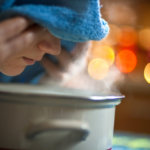
Non-Small Cell Lung Cancer (also known as NSCLC is responsible for as much as an estimated 85% of lung cancers; this makes it the most commonly diagnosed form of lung cancer out there. If you suspect that you might be suffering from NSCLC and you have not been diagnosed yet, then you should make an appointment with your medical professional and mention a thorough list of your symptoms so that they are able to make a proper diagnosis and treat the symptoms.
If you have been diagnosed with NSCLC, then you should know that the prognosis is good in most cases – as long as the cancer can be spotted early and treated accordingly, the chances of recovery are positive for most. But that doesn’t mean it will be easy to deal with.
Here are 8 useful and practical tips for coping with NSCLC that can be combined with the treatment regimen that has been recommended by your doctor.
1. A Healthy Diet
A healthy diet should contain everything that you see in your classic food pyramid that most people have seen before: To have a balanced, healthy diet you’re going to need more of the bottom levels of the food pyramid and less of the things that make up the top, such as fats: A lot of people take this to mean they need to cut these fats out of their diet completely, but this just means that you’ll have to cut down on the bad fats and get more of the good fats – like that found in real butter and avocadoes.
If you have been diagnosed with cancer or consider yourself at risk of developing it, then you should make an immediate switch to a healthy and natural diet. Your doctor or nutritionist should be able to help you to put together a healthy diet – and you should consider adding supplements to this, too.


